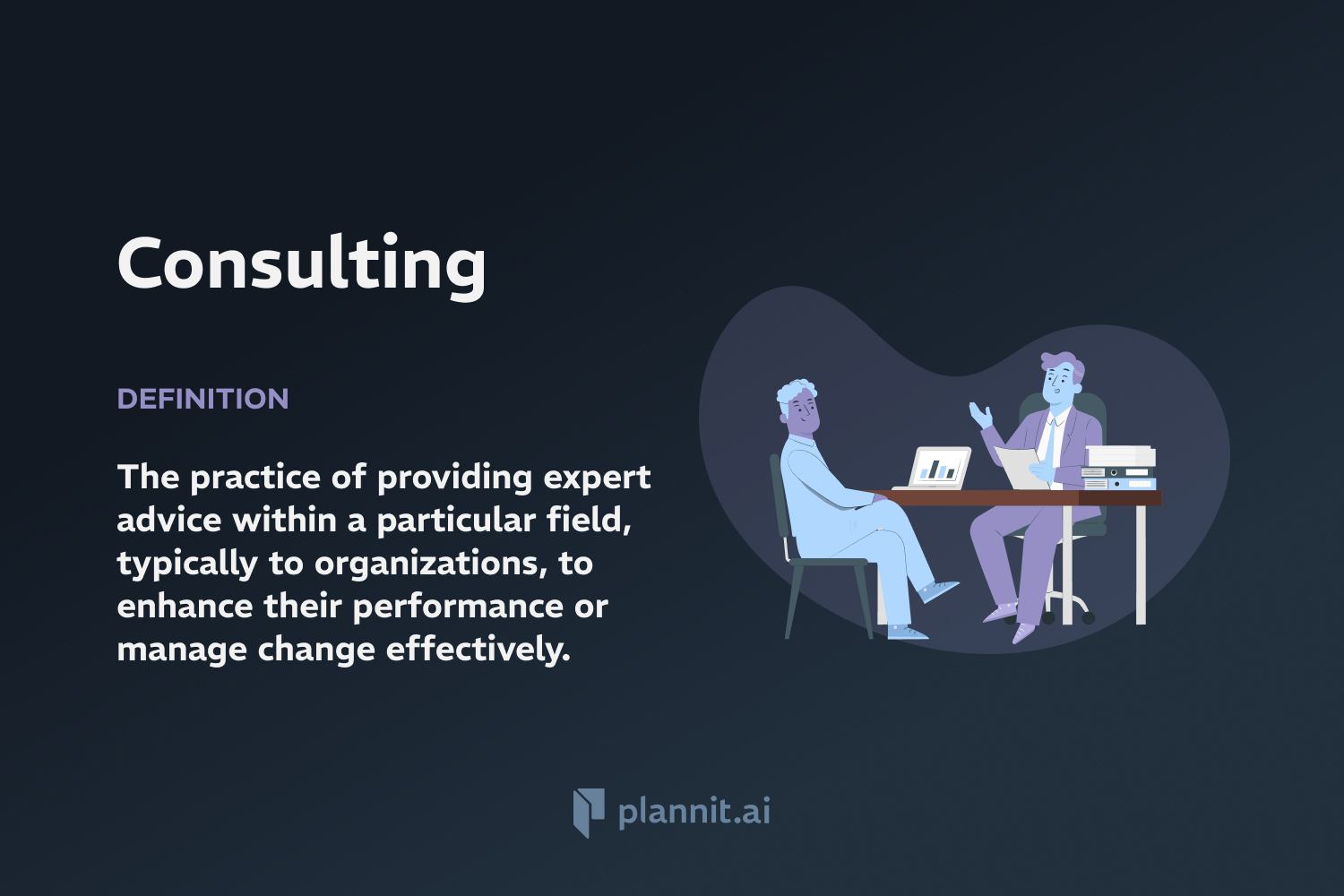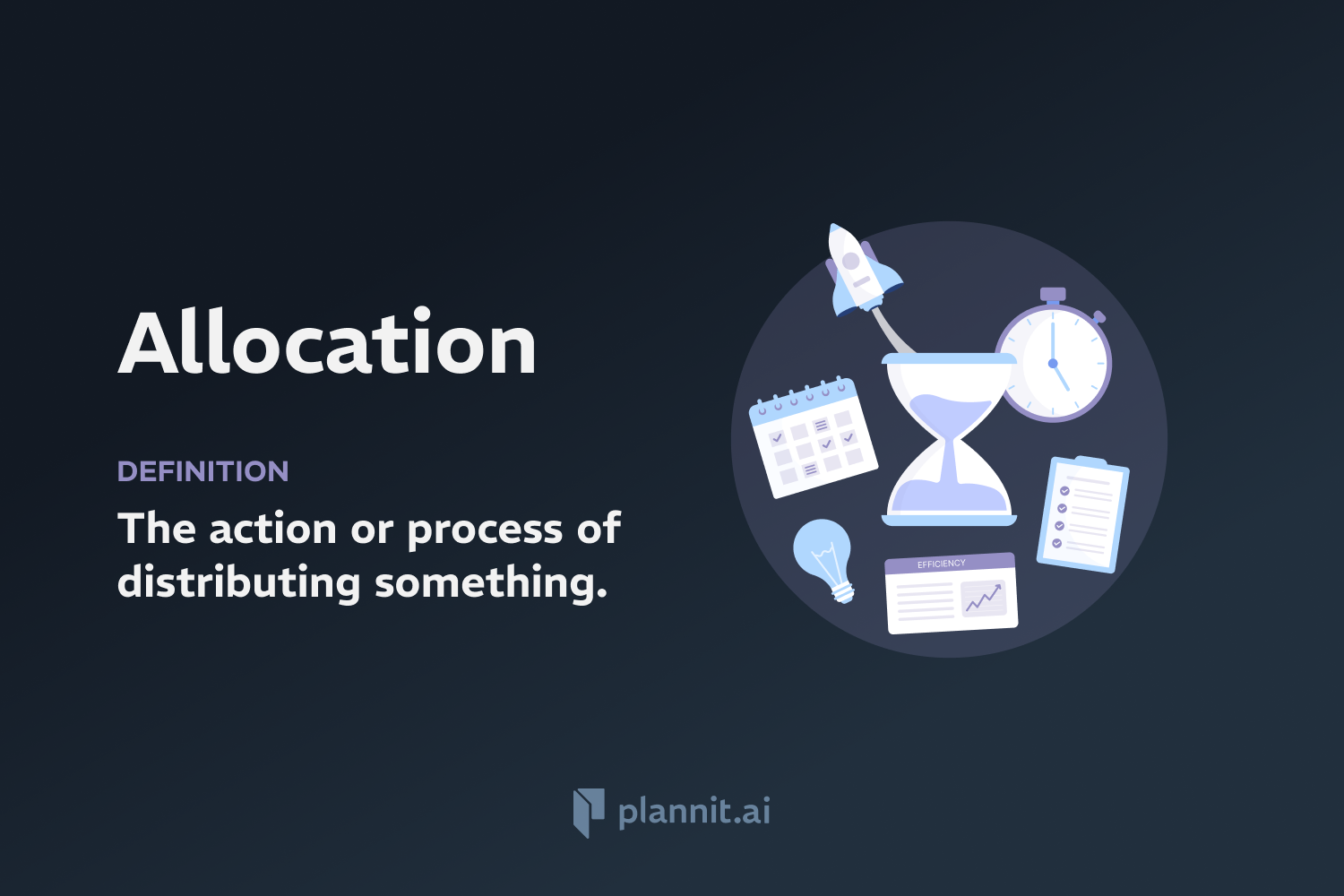Need Help With Your Business Plan?
Answer tailored questions and get a detailed business plan in minutes.
Consulting: Definition & In-Depth Explanation

Definition:
Consulting refers to the professional practice of providing expert advice within a specific field, such as management, technology, finance, or human resources. Consultants are specialists who analyze organizational issues, develop solutions, and help implement changes to improve a business's performance and efficiency.
Context of Use:
Consulting is utilized across various industries and sectors including corporate, non-profit, and government organizations. It is often employed when an external, objective perspective is needed, or when specialized skills are required that are not available internally.
Purpose:
The primary purpose of consulting is to provide organizations with access to specialized knowledge and skills that assist in solving problems, creating value, maximizing growth, and improving business performance. Consultants not only recommend changes but also can assist in implementing solutions to ensure practical results.
Example:
Management Consulting: Focuses on improving organizational performance through the analysis of existing business problems and development of plans for improvement.
IT Consulting: Specializes in technology strategies, advising on the development, implementation, and usage of IT systems to meet business objectives.
Related Terms:
Consultant: A professional who provides expert advice in a particular area.
Strategy Consulting: A service provided by management consultants with the aim of helping clients enhance their competitive position through strategic decision-making.
Operational Consulting: Focuses on improving the efficiency of a company's operations.
FAQs:
1. What distinguishes consulting from other advisory services?
A: Consulting typically involves both advisory and implementation services, whereas other advisory types might only offer strategic advice without engaging in the execution of solutions.
2. How do consultants deliver value to their clients?
A: Consultants deliver value by providing expert insights, facilitating change, driving innovation, and offering solutions that improve business performance and operational efficiency.
3. What skills are essential for a consultant?
A: Key skills include problem-solving, analytical abilities, effective communication, expertise in a specific field, and the capacity to manage projects and implement strategies.
4. How is success measured in consulting engagements?
A: Success is often measured by the client's achievement of desired outcomes, such as increased efficiency, profitability, or improved competitive positioning.
5. What are the ethical considerations in consulting?
A: Ethical considerations include maintaining confidentiality, avoiding conflicts of interest, providing unbiased advice, and ensuring transparency in billing and fees.
Get funding with a business plan that will impress investors.
Starting a New Business?



